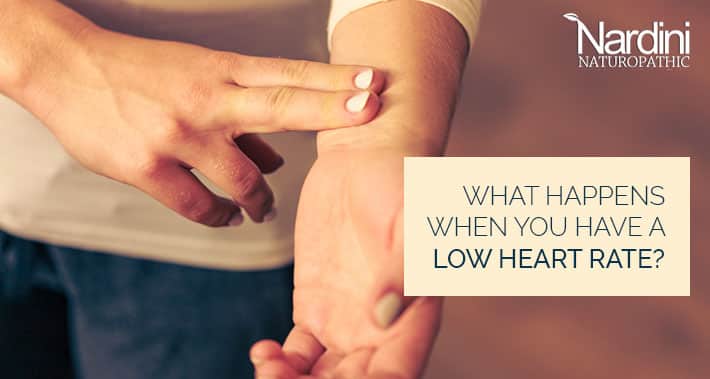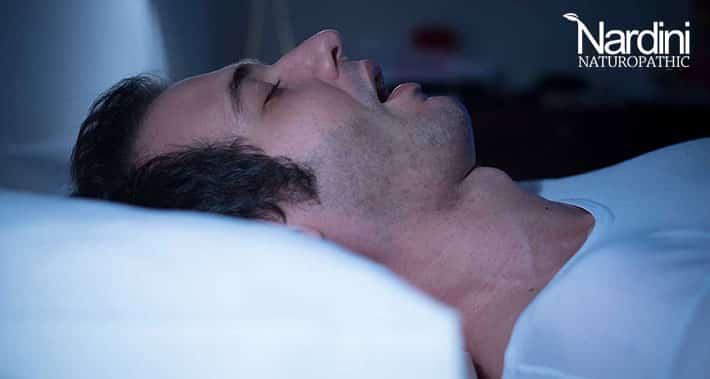When it comes to overall well-being, cardiovascular health is a big part of how you feel.
Your heart keeps the blood pumping, which provides oxygen and nutrients to the rest of your body so it can function properly.
If your heart rate is too high (also called tachycardia), or too low (bradycardia) it can have health consequences.
Today we will take a look at what happens when your heart rate is too low, when you should be concerned and when you shouldn’t.
Why Is Your Heart Rate So Important?
Your heart rate is an important indicator of overall health.
Your heart rate controls the rate at which blood flows through your body.
And your blood’s job is to, among other things, move the oxygen your lungs take in to the parts of your body that need it.
When it falls outside of ideal ranges it can be a warning sign of other health issues.
A high heart rate can lead to an inability to pump enough blood, and the excess strain on the heart can lead to a heart attack.
If your heart rate is too low however, it can be both a sign that you’re unhealthy, or that you’re really healthy.
Keep reading to learn more.
When Is A Slow Heart Rate Not A Problem?
There are a couple of situations in which having a low heart rate isn’t an issue – if you are very physically fit, and when you are sleeping.
Let’s look at why this is the case.
1. When You’re Physically Fit
A 2018 study in the Journal of Clinical Medicine looked at the effects of exercise on resting heart rate1.
This study found that establishing a regular exercise routine can play a role in decreasing resting heart rate, and also may be linked to increased life expectancy.
The reason for this is because when you’re healthy and your heart is strong, it doesn’t have to work as hard to pump blood out to your body.
2. When You’re Sleeping
Another situation where a low heart rate is not an issue is when you’re sleeping.
A study in the Journal of Sports Science and Medicine found heart rate typically slows when an individual is sleeping2.
This is because, when you’re asleep, your heart doesn’t need to work as hard to pump blood to your body.
Its main goal at this point is to ensure enough blood gets to your various organs, like your thyroid, pancreas, adrenal glands, and parathyroid glands , to keep them functioning.
Also, since you’re lying down while you sleep, your heart doesn’t have to work against gravity to get blood to your brain.
When May A Slow Heart Rate A Problem?
If you aren’t sleeping and aren’t especially physically fit, a low heart rate can become a serious issue.
Let’s look at some of the disorders connected with a low heart rate.
1. Hypothyroidism
The thyroid, located at the front of the neck, is a butterfly-shaped gland which plays an important role in the body, by secreting hormones into the bloodstream.
Hypothyroidism is a thyroid disorder that occurs when the thyroid isn’t producing enough hormones to keep the processes it manages functioning properly.
One of the functions controlled by these thyroid hormones is heart rate. If the heart rate is too low, it could be due to a thyroid disorder.
Other signs which could indicate hypothyroidism include:
- Chronic fatigue
- Depression
- Dry skin and hair, and hair loss
- Weight gain
- Irregular menstrual cycles
If you are having these symptoms, you should see your naturopath to get tested for hypothyroidism.
2. Old Age
This one isn’t so much of an issue as it is a fact of life – as we age, our resting heart rate decreases.
In a young child, a heart rate of up to 120 beats per minute can be considered normal.
As we get older however, average heart rate declines.
In a 2013 study, researchers at the University of Colorado looked at the reasons why heart rate decreases as people age3.
Simply put, as you get older your heart can’t work as hard as it once did.
One reason for this, the researchers found, is that, as you age, the spontaneous electrical activity of the heart’s natural pacemaker is slowed.
3. Sleep Apnea
Sleep apnea is a condition in which breathing starts and stops during sleep.
Because sleep apnea is disruptive to the amount of oxygen your body is able to get, it’s a potential cause of bradycardia.
Additionally, this condition can lead people to be very tired during their waking hours, as the interruptions in breathing cause those afflicted to wake up continually throughout the night.
Some signs of sleep apnea include:
- Snoring
- Drowsiness during the daytime
- Headaches in the morning
- Sweating at night
- Low libido
- Waking up abruptly and gasping or choking
- Changes in mood
- Dry mouth in the morning
4. Certain Pharmaceuticals
There are a number of medications which can cause bradycardia4.
Some of these include:
- Calcium channel blockers
- Alpha/Beta-adrenergic blockers
- Digoxin
- H2 Blockers
- Lithium
- Tricyclic antidepressants
- Neuromuscular blockers
5. Other Possible Causes
Other possible causes of bradycardia include:
- High cholesterol levels
- Electrolyte imbalances
- Abnormal heart rhythms
- Congestive cardiomyopathy
- Heart attack
- Stroke
- Atrioventricular (AV) node damage
- Sick sinus syndrome
1. https://www.ncbi.nlm.nih.gov/pmc/articles/PMC6306777
2. https://www.ncbi.nlm.nih.gov/pmc/articles/PMC3963245
3. https://www.sciencedaily.com/releases/2013/10/131014155744.htm
4. https://journals.lww.com/nursing/fulltext/2002/08000/could_that_medication_cause_bradycardia_.26.aspx
Naturopathic Solutions For Low Heart Rate
When it comes to providing treatment for low heart rate, there is no “one-size-fits-all” approach.
As we’ve discussed, there are a number of potential reasons for bradycardia, and the best solution will depend on the underlying root cause.
I’m Dr. Pat Nardini, a naturopathic doctor in Toronto, and if you are experiencing a low heart rate or other symptoms which you find to be a cause for concern, I can help you to determine the reason for it.
Once we find the underlying cause, then we can discuss which treatment options are right for you.
Contact me, Dr. Pat Nardini, ND, today to set up an appointment.
If you have questions about naturopathic medicine, or you’d like to take your first step into the world of naturopathy, contact us at Nardini Naturopathic, and let’s book an appointment.
Yours in health,
Dr. Pat Nardini, Naturopathic Doctor
320 Danforth Ave suite 206,
Toronto, ON, M4K 1N8
-https://g.page/NardiniNaturopathicDanforth
Dr. Pat Nardini, ND is a licensed doctor of naturopathic medicine in Toronto, Ontario. He offers science based natural health solutions with a special focus on thyroid conditions.


